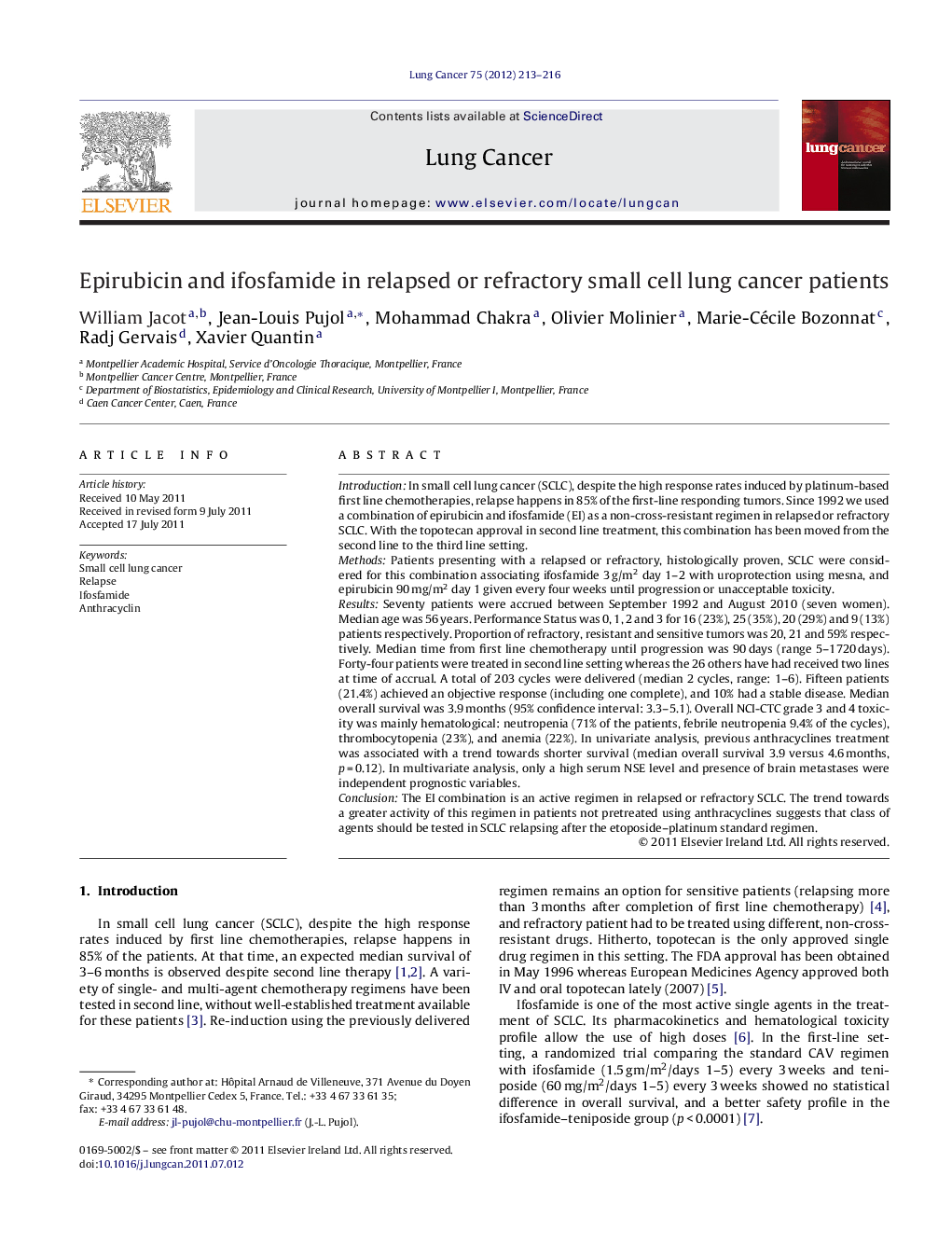| کد مقاله | کد نشریه | سال انتشار | مقاله انگلیسی | نسخه تمام متن |
|---|---|---|---|---|
| 2141778 | 1088296 | 2012 | 4 صفحه PDF | دانلود رایگان |

IntroductionIn small cell lung cancer (SCLC), despite the high response rates induced by platinum-based first line chemotherapies, relapse happens in 85% of the first-line responding tumors. Since 1992 we used a combination of epirubicin and ifosfamide (EI) as a non-cross-resistant regimen in relapsed or refractory SCLC. With the topotecan approval in second line treatment, this combination has been moved from the second line to the third line setting.MethodsPatients presenting with a relapsed or refractory, histologically proven, SCLC were considered for this combination associating ifosfamide 3 g/m2 day 1–2 with uroprotection using mesna, and epirubicin 90 mg/m2 day 1 given every four weeks until progression or unacceptable toxicity.ResultsSeventy patients were accrued between September 1992 and August 2010 (seven women). Median age was 56 years. Performance Status was 0, 1, 2 and 3 for 16 (23%), 25 (35%), 20 (29%) and 9 (13%) patients respectively. Proportion of refractory, resistant and sensitive tumors was 20, 21 and 59% respectively. Median time from first line chemotherapy until progression was 90 days (range 5–1720 days). Forty-four patients were treated in second line setting whereas the 26 others have had received two lines at time of accrual. A total of 203 cycles were delivered (median 2 cycles, range: 1–6). Fifteen patients (21.4%) achieved an objective response (including one complete), and 10% had a stable disease. Median overall survival was 3.9 months (95% confidence interval: 3.3–5.1). Overall NCI-CTC grade 3 and 4 toxicity was mainly hematological: neutropenia (71% of the patients, febrile neutropenia 9.4% of the cycles), thrombocytopenia (23%), and anemia (22%). In univariate analysis, previous anthracyclines treatment was associated with a trend towards shorter survival (median overall survival 3.9 versus 4.6 months, p = 0.12). In multivariate analysis, only a high serum NSE level and presence of brain metastases were independent prognostic variables.ConclusionThe EI combination is an active regimen in relapsed or refractory SCLC. The trend towards a greater activity of this regimen in patients not pretreated using anthracyclines suggests that class of agents should be tested in SCLC relapsing after the etoposide–platinum standard regimen.
Journal: Lung Cancer - Volume 75, Issue 2, February 2012, Pages 213–216